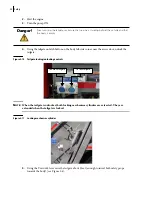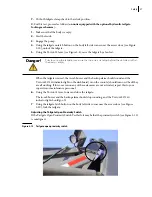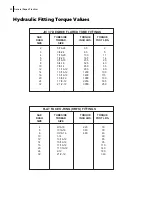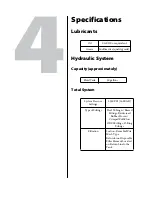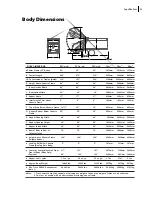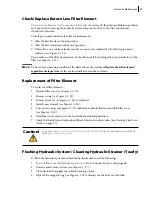
38 General Repair Practices
The “|” is “blocking” the power from going against the direction of the arrow as a visual reference for
path of flow within the circuit.
To test, set the multimeter to resistance or diode test, and put the positive (red) lead on the anode
side, and the negative (black) lead on the cathode side. The multimeter should read very low ohms of
resistance, roughly 0.1. This verifies the diode is allowing power to flow from anode to cathode
(following the direction of the arrow). If the resistance is high, the diode is damaged and must be
replaced.
Next, reverse the location of the test leads by putting the negative (black) test lead on the anode side
and the positive (red) lead on the cathode side. The multimeter should read very high ohms of
resistance (k-ohm or open range). If the resistance is low, the diode is damaged and must be replaced.
Welding
Observe the following:
Completely clean out an old weld before rewelding.
When repairing a cracked weld, the old weld should be completely removed before rewelding.
When adding a part or attachment be sure the metal is clean before welding, the part is properly
located and the weld will not cause damage to adjacent parts.
Use E7018 rod for all locations.
Use ER-70S-6 wire for all locations.
Capacity of Lifting Device Required for Removal
Cylinders
500 lbs (227 kg)
Telescopic Pushout Cylinders
1000 lbs (454 kg)
Carrier Panel
1600 lbs (726 kg)
Packer Panel
1600 lbs (726 kg)
Pushout Panel
2800 lbs (1270 kg)
Tailgate
8000 lbs (3629 kg)
Summary of Contents for 2R-III
Page 1: ...2R III MAINTENANCE MANUAL...
Page 2: ......
Page 3: ...2R III MAINTENANCE MANUAL...
Page 5: ......
Page 6: ......
Page 20: ...10 Introduction...
Page 42: ...32 Safety...
Page 58: ...48 Preventive Maintenance Figure 5 1 Hydraulic tank w return filter 1 2 3 4 5 6 7 8...
Page 66: ...56 Preventive Maintenance...
Page 102: ...92 Troubleshooting...

